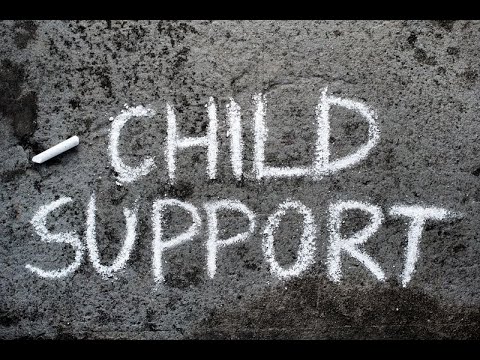
Consider These Seldom-Discussed Separation Agreement Terms
 A separation agreement is usually the first legal instrument a divorcing couple will agree upon. Although the parties are still legally married, the separation agreement mandates and directs the affairs of the parties while they are living separately. The agreement is crucial as it can set the tone for the final agreement that is incorporated into the divorce decree. Parties should be hard-pressed to agree to terms that are the most fair to their wants and needs. There are a few important terms that are seldom discussed when one thinks of a separation agreement. These terms can also be some of the most contentious during divorce proceedings. It can also make for a speedy proceeding if the parties are able to decide on them during the separation phase.
A separation agreement is usually the first legal instrument a divorcing couple will agree upon. Although the parties are still legally married, the separation agreement mandates and directs the affairs of the parties while they are living separately. The agreement is crucial as it can set the tone for the final agreement that is incorporated into the divorce decree. Parties should be hard-pressed to agree to terms that are the most fair to their wants and needs. There are a few important terms that are seldom discussed when one thinks of a separation agreement. These terms can also be some of the most contentious during divorce proceedings. It can also make for a speedy proceeding if the parties are able to decide on them during the separation phase.
Living Arrangements
During a marriage, most couples will purchase a house together and share joint ownership. A house may be the largest and most expensive asset a couple may own. During separation, one spouse usually has to leave the marital home. If the parties are financially stable, they can agree to keep the home and one party can obtain a separate dwelling place. Some parties may agree to sell the home and share the profits. If both parties have practical, emotional or financial attachments to the home, the may both decide to remain in the home for the duration of the divorce proceeding. In this instance, the parties would be wise to include terms regarding the rules of cohabitation during separation.
However, parties who are divorcing in North Carolina must live separate and apart to qualify under the one-year of separation divorce ground. This means that they must live in separate dwelling homes. In addition, North Carolina is an equitable distribution state, therefore, if the home was purchased by one spouse before the marriage and the financials of the home was not commingled in the marital finances, then one spouse will receive the home as theirs. The equitable distribution analysis will government much of the property owned by the spouses.
Parenting
When children are involved in a divorce, the more complex a separation agreement becomes. It is important to note that the parenting clause is one that will constantly change depending on the age and needs of the child at any given point. Initial terms on legal and physical custody can test the agreement during the separation period. A judge may adopt the terms when the divorce is final. For this term, the parties may agree on a plethora of items governing the child’s life. This includes agreement on how to raise the child, activities in which the child will participate, the child’s living arrangements, the child’s health and wellness, etc. Therefore, the parties can negotiate and contract on just about any concept concerning the child’s well-being.
Medical and Dental Insurance
Medical and dental insurance terms are not an intuitive detail to contract around when considering a separation agreement. However, they are important for all parties involved. The parties involved may want to determine whose health and dental plan a child will benefit from during the duration of the divorce proceeding and after. If one party benefits from the other’s insurance plan, then the parties should agree on whether the dependent party will remain on the plan. As part of child or spousal support, the parties may also determine how any uncovered medical treatments will be handled in the future.
Charlotte Separation Attorneys
A separation agreement is one of the most important aspects of a divorce. You deserve an attorney who will guide you through the process and anticipate crucial steps that are commonplace in divorce proceedings. When a separation agreement covers many areas governing the lives of the parties, the less dispute resolution is involved in the process. The experienced North Carolina attorneys at Powers Landreth PLLC are here to help determine whether a separation agreement is right for you. Contact us now for a consultation.
Resources:
ncleg.net/EnactedLegislation/Statutes/PDF/ByChapter/Chapter_50.pdf
ncga.state.nc.us/gascripts/statutes/statutelookup.pl?statute=50-20
Learn More
Divorce Mediation in North Carolina
 What is Mediation?
What is Mediation?
Mediation is an out-of-court alternative dispute resolution method that takes the place of tradition in-court proceedings. Mediation focuses on collaboration and discovering common ground within a dispute. Generally, mediation is a voluntary process; however, some states mandate mediation as a starting point for certain disputes. Even though mediation is generally a voluntary process, the agreement that is drawn as a result of the mediation is binding on all parties involved. Mediation has grown to become a workable dispute resolution process for separating and divorcing parties.
The goal of mediation is to create the best possible outcome utilizing fairness and strategies that will facilitate harmony in long-term relationships. Parties who engage in the mediation process will find that it is less adversarial and more equitable. Further, parties are able to reach their settlement goals more readily when they opt for mediation.
There are many benefits of mediation, including the following:
- Less expensive than traditional court proceedings;
- Mediation usually ends with a settlement on all divorce issues;
- Parties can still have their attorney present;
- The parties have control over the outcome of the process; and
- A trained mediator will help facilitate the dispute resolution process.
The Mediation Process
Parties can opt for mediation before or during the divorce court proceeding. A couple may choose to use mediation as a means of negotiating a separation agreement, parenting schedules, property distribution and child custody. Some states, including North Carolina, restrict the issues around which parties may mediate. In North Carolina, mediation involving a history of domestic violence is restricted. As discussed above, mediation is generally voluntary. However, North Carolina law mandates that all child custody disputes start with mediation. It is obvious that mediation is valued as a more desirable process when children are involved. This is not surprising as mediation seeks to consider the best interests of all parties involved in the dispute.
In North Carolina, the mediation process starts with orientation where all sides of the dispute are apprised about the process. At this point, the court or the parties will choose a mediator to facilitate the mediation. The parties are then separated so that the mediator gets a sense of what the issues are on all sides. Some mediation sessions will remain segregated with the mediator as the go-between. In the alternative, some sessions are integrated. If the parties come to an agreement, they must sign a contract and the document is presented to the court for certification. If the parties do not come to an agreement (which also happens), then the court will set a date for an adversarial hearing.
Charlotte Divorce Attorneys
Mediation is another way to deal with the issues in your divorce case. There are many benefits to the mediation process as discussed above. The attorneys at Powers Landreth PLLC have years of experience navigating the North Carolina mediation program. We know that dispute resolution is important, especially when children are involved. The seasoned attorneys at Powers Landreth PLLC are here to guide you through the divorce and child custody mediation processes. Contact us now for a consultation.
Resources:
nccourts.org/Citizens/CPrograms/Child/Documents/DVPolicy.pdf
ncleg.net/gascripts/statutes/statutelookup.pl?statute=7a-494
Learn More
Exploring Common Law Marriages in North Carolina
 Common Law Marriages
Common Law Marriages
A common law marriage is a legally recognized marriage that is permitted in certain jurisdictions and does not require a license or a ceremony. In these marriages, the state will recognize when two people live together as spouses and hold themselves out as a married couple. North Carolina does not recognize common law marriage arising in the state. However, a few states, including Iowa, South Carolina, and Colorado, and Texas do recognize common law marriages. For example, to have a valid common law marriage in Texas, the two individuals have to (1) agree to be married, (2) live together as husband and wife, (3) and show others that the marriage exists (i.e., hold themselves out as married). In Alabama, each person must show an intention to be married and there must consummation. In a recent development, Alabama has abolished common marriages arising after January 1, 2017.
Although a common misconception, a couple need not enter the common law marriage for a specific time frame to gain recognition for common law marriage. They must only fulfill the qualitative requirements under the state statute.
North Carolina Recognizes Valid Common Law Marriage Arising Elsewhere
As discussed, North Carolina does not recognize common law marriage that arises or is commenced in the state. The only type of marriage that is valid in North Carolina requires a solemnization ceremony presided over by a minister or other persons authorized by law to perform marriage ceremonies. However, North Carolina will recognize common law marriages that arose in other states that recognize common law marriages. Therefore, spouses who commenced their marriage in South Carolina will not lose that recognition if they move to North Carolina so long as the marriage is still valid under South Carolina law and the couple can establish the date on which the marriage commenced. If a common law marriage was commenced in South Carolina, but it is found that the marriage was improperly formed, North Carolina has the right to withhold recognition of the marital relationship. Further, North Carolina has the authority to ensure that all benefits flowing from the marital relationship cease.
The Benefits of Having Common Law Marriage Recognized
The recognition of a common law marriage seems to become a crucial sticking point when the marriage ends, rather than during the marriage. Still, recognition can bring about benefits during the marriage. These benefits can include access to health insurance and government or military-related entitlements that are based on the marital relationship. All the same, spouses who do not formally marry find importance in the recognition of a common law marriage if one of the spouses dies or when there is a dissolution of the relationship. In order to be divorced, one has to be married. If there is a recognition of a marriage, each spouse can reap the benefits of getting what they have invested into the relationship. The benefits can come in the form of alimony, property distribution, and standard of living considerations. In the same respect, if one spouse dies, recognition of the relationship as a marriage will entitle the surviving spouse to property under probate law in the case the deceased spouse did not leave a will. Again, although a couple cannot commence a common law marriage in North Carolina, it is important for them to know that North Carolina law will honor valid common law marriage arising in another state. The value of understanding the nuances of this law, can make a world of difference.
Do You Need Legal Assistance?
If you have any questions about a family law case or need general legal advice, please contact Powers Landreth PLLC in Charlotte. We have our experienced attorneys on-hand to provide you with quality legal representation. Contact us for your consultation.
Resources:
guides.sll.texas.gov/common-law-marriage
al.com/news/index.ssf/2016/12/common_law_marriage_in_alabama_1.html
ncga.state.nc.us/EnactedLegislation/Statutes/PDF/BySection/Chapter_51/GS_51-1.pdf
Learn More
Components of Child Support Costs in North Carolina
 Today the examination will focus on the different components of child support in North Carolina. Before progressing any further, it is vital to note that the North Carolina courts will always try to act in the best interests of the child. If need be, the courts will take unorthodox actions to protect the children involved in any family dispute in North Carolina.
Today the examination will focus on the different components of child support in North Carolina. Before progressing any further, it is vital to note that the North Carolina courts will always try to act in the best interests of the child. If need be, the courts will take unorthodox actions to protect the children involved in any family dispute in North Carolina.
That being said, the North Carolina courts rely on three primary factors to determine child support: (1) gross monthly income, (2) childcare expenses and (3) insurance and healthcare expenses.
Gross Monthly Income
Under the North Carolina Child Support Guidelines, a fundamental component of child support involves the combined monthly income of both parents. North Carolina employs a table-based worksheet to determine the appropriate amount of child support.
The child support worksheets combine the total monthly income from both parents. Then the worksheets apply a multiplier for the number of children. The intersection of income and number of children represents the appropriate child support payment. Though it should be noted that the worksheet does account for the childcare as well as insurance and healthcare costs detailed in the following sections.
It is important to note that there are different worksheets for the varying types of child custody, including sole and joint custody. This ensures that the parents achieve an appropriate cost distribution to care for their children.
Childcare Expenses
Another aspect of the child support calculation in North Carolina involves childcare expenses. This category addresses the fundamental costs associated with raising a child, including but not limited to food, rent and transportation.
The childcare expenses category can also account for certain parental obligations as well. For example, if a parent has to spend money on daycare to search for a job, then they can add those costs to childcare expenses. The same can apply for money spent while the custodial parent attends school or other classes. In either case, the North Carolina courts have discretion to determine whether such costs should be included in childcare expenses.
Insurance and Healthcare Expenses
This category of child support in North Carolina centers on the costs of providing insurance and healthcare for the children involved. Expenses in this category typically include medical, dental and vision health insurance. This category also includes other healthcare costs that either parent incurs on behalf of the children involved.
Let Us Help You with Your Case
Whether you are dealing with child support, divorce or other aspects of family law, a proficient family law attorney can help you analyze important details and plan an appropriate strategy for a favorable outcome. Contact Powers Landreth PLLC in Charlotte, North Carolina for help today.
Resource:
nccourts.org/Forms/Documents/1226.pdf
Learn More
Important Considerations for Prenuptial Agreements in North Carolina
 The idea of executing a prenuptial agreement, also known as a premarital agreement, can be scary for any couple on the road toward marriage. But in all reality, prenuptial agreements are an increasingly common situation for couples to face. Moreover, couples can decrease the potential friction associated with a prenuptial agreement through an understanding of several important considerations.
The idea of executing a prenuptial agreement, also known as a premarital agreement, can be scary for any couple on the road toward marriage. But in all reality, prenuptial agreements are an increasingly common situation for couples to face. Moreover, couples can decrease the potential friction associated with a prenuptial agreement through an understanding of several important considerations.
Create a Prenuptial Agreements In Writing
As outlined in in Chapter 52B of the North Carolina General Statutes, prenuptial agreements must be made in writing and signed by both spouses. Without a valid writing signed by both parties, the prenuptial agreement becomes invalid and unenforceable.
Make Changes to a Prenuptial Agreement In Writing
Chapter 52B also provides that any changes to a prenuptial agreement in North Carolina must be made in writing and signed by both parties. The writing requirement applies if the spouses want to amend the prenuptial agreement to feature different terms. The same requirement applies if the spouses wish to revoke or cancel their prenuptial agreement.
Avoid Last-Minute Prenuptial Agreements
This might seem like common sense. But it is worth hammering home nonetheless. The less time couples leave for the negotiation and drafting of a prenuptial agreement, the more likely the chance of dispute. When couples rush to create a prenuptial agreement shortly before their wedding, the chance of leaving out important terms or considerations escalates exponentially. Plan ahead to ensure that you and your spouse feel comfortable with your prenuptial agreement.
Separate Premarital Assets from Postmarital Assets
The separation of premarital and postmarital assets can be extremely important. If spouses commingle or mix their assets from before and after marriage, the distribution of property during divorce can get muddled. In such circumstances, it can be difficult to prove which spouse owned what property before their marriage. That would make a prenuptial agreement exceedingly difficult to enforce.
Treat Your Future Spouse Honestly and Respectfully
Whenever creating a prenuptial agreement, it is paramount for future spouses to remember that they are about to get married. They want to spend the rest of their life together. If either spouse enters prenuptial negotiations forcefully or aggressively, they may do irreparable harm to their relationship. That is why it is crucial to act in an upfront, honest and respectful way throughout the creation and execution of a prenuptial agreement.
Speak With an Experienced Family Law Attorney Today
If you are dealing with a prenuptial agreement, divorce or other aspects of family law, it is important to contact an experienced attorney. Don’t hesitate to reach out to Powers Landreth PLLC in North Carolina for help.
Resource:
ncga.state.nc.us/gascripts/Statutes/StatutesTOC.pl?Chapter=0052B
Learn More
How Settlement Negotiations Contribute to Amicable Divorce in North Carolina
 The common perception of divorce is generally negative. Pop culture is rife with depictions of nasty divorces and spouses bickering over every single possession. Children are often caught in the crossfire, as their parents fight bitterly to take everyone possible from their former partner.
The common perception of divorce is generally negative. Pop culture is rife with depictions of nasty divorces and spouses bickering over every single possession. Children are often caught in the crossfire, as their parents fight bitterly to take everyone possible from their former partner.
In order to avoid a costly and lengthy divorce battle in the courts, an increasing number of spouses are taking advantage of settlement negotiations. Using techniques from alternative dispute resolution, the settlement negotiation process helps amenable spouses work together to isolate a mutually beneficial solution to divorce.
The following sections will provide an overview of the settlement negotiation process in North Carolina.
What is the Settlement Negotiation Process in North Carolina?
As outlined in Chapter 50, Article 4 of the North Carolina General Statutes, settlement negotiations feature an out-of-court process for spouses who wish to divorce.
Instead of engaging in a fully fledged court process for divorce, settlement negotiations allow the spouses to resolve their issues directly. Stated otherwise, the spouses work with each other to design the parameters of their divorce.
Throughout the settlement negotiation process, the spouses and their respective attorneys will work together to plan the family’s post-divorce reality. If the spouses have children, they will need to determine child custody. In certain cases, alimony or other support may be appropriate. The spouses will also need to figure out the equitable distribution of the marital property that they share together.
Overall, the settlement negotiation process allows spouses to plan out all of the essential terms in a divorce, without the stress of court filings, appearances, and additional attorney’s fees.
How Do Settlement Negotiations Help Achieve Divorce in North Carolina?
Chapter 50, Article 4 of the North Carolina General Statutes outlines certain requirements necessary to achieve an out-of-court divorce. Assuming the spouses are able to agree amicably on all required divorce terms – including child support, property division, alimony, etc. – then there are a few remaining steps.
First things first, the spouses and their attorneys prepare a writing that summarizes their settlement negotiations. Both spouses and their respective lawyers must sign the writing. Without all required signatures, the writing is not valid or effective.
Secondarily, the writing must specify all of the agreements and understandings from the settlement negotiation process. This means that the writing must spell out in specific terms all agreements concerning alimony, child support, property division or other relevant terms.
Let Us Assist You Today
Whether you are dealing with settlement negotiations, it can be valuable to seek legal assistance from a skilled family law attorney. Don’t hesitate to contact Powers Landreth PLLC in Charlotte for help.
Resource:
ncleg.net/EnactedLegislation/Statutes/HTML/ByArticle/Chapter_50/Article_4.html
Learn More
Britny’s Law Enhances Punishment for Domestic Violence in North Carolina
 “Britny’s Law” went into effect on December 1, 2017, enhancing the penalties for domestic violence in North Carolina, according to an article by WRAL.
“Britny’s Law” went into effect on December 1, 2017, enhancing the penalties for domestic violence in North Carolina, according to an article by WRAL.
Three years ago, Britny Puryear was stuck in a vicious relationship. At that time, Britny lived with her boyfriend in Fuqua-Varina, North Carolina. Over the course of four years, their relationship became increasingly abusive. The relationship ended after a violent argument in 2014, when the boyfriend shot and killed Britny in their home.
The boyfriend was arrested and charged with second-degree murder. He pleaded guilty in court and received a 32-year jail term. The boyfriend is currently serving his sentence.
Britny’s parents were not satisfied with this outcome. They felt that first-degree murder should apply, given the abusive history of the relationship. Outside of certain exceptions under the felony murder rule, first-degree murder requires premeditation. Stated otherwise, the killer must plan out the murder ahead of time. Generally speaking, that is a difficult standard to prove in cases of domestic violence like Britny’s, where an argument sparked violence.
To continue the fight, Britny’s parents contacted the North Carolina Coalition Against Domestic Violence (NCCADV). The NCCADV is a nonprofit organization dedicated to ending domestic violence and supporting victims.
Working alongside the NCCADV, Britny’s parents were able to find a Minnesota law that classified domestic violence killings as first-degree murder. So the NCCADV used the Minnesota law as a foundation to create similar legislation in North Carolina.
The initial form of Britny’s law would have made it much easier to apply first-degree murder whenever there was evidence of repeated past abuse. As the bill worked through the North Carolina legislature, however, there were some changes. In its final form, Britny’s law requires a previous conviction for domestic violence in order for first-degree murder to apply.
Overall, Britny’s law clears the path to first-degree murder for future domestic violence killings. If the killer has a previous conviction for domestic violence involving the victim, that qualifies as premeditation. In such circumstances, the resulting charge will likely be first-degree murder, not second-degree murder.
While Britny’s parents are happy to see changes to the domestic violence laws in North Carolina, they plan to continue fighting in their daughter’s honor. They would like to see the initial form of Britny’s law resurrected and signed into law, allowing any past evidence of abuse to escalate a domestic violence killing to first-degree murder.
Do You Need Legal Assistance?
If you are struggling with domestic violence, divorce or related concerns, it can be valuable to seek legal counsel from a trusted family law attorney. Contact Powers Landreth PLLC for dedicated assistance with your case.
Resource:
wral.com/family-still-pushing-for-stricter-domestic-violence-punishments-as-britny-s-law-takes-effect/17152551/
Learn More
Examining Marriage and Divorce Statistics in North Carolina
 The North Carolina Department of Health and Human Services (DHHS) publishes a report each year detailing the number of marriages and divorces. The topic for exploration today is an analysis of DHHS data on the number of North Carolina marriages and divorces over the past five years.
The North Carolina Department of Health and Human Services (DHHS) publishes a report each year detailing the number of marriages and divorces. The topic for exploration today is an analysis of DHHS data on the number of North Carolina marriages and divorces over the past five years.
It is crucial to note that 2017 is not yet available. As a result, the five-year period for analysis will be 2011 to 2016. The following sections will offer a statistical breakdown of DHHS data for the statewide resident population, total divorces, divorce rate, total marriages and marriage rate.
North Carolina Resident Population
In terms of resident population of North Carolina, the DHHS reported the following data.
- 2011: 9,651,025
- 2012: 9,747,021
- 2013: 9,845,432
- 2014: 9,940,387
- 2015: 10,042,802
- 2016: 10,146,788
Over the selected five-year period, the resident population of North Carolina increased by 495,763. The data indicates a lack of significant deviation during this time period. Overall, the resident population in North Carolina rose steadily and consistently from 2011 to 2016.
North Carolina Divorces and Divorce Rate
In terms of total divorces in North Carolina, the DHHS reported the following data.
- 2011: 36,044
- 2012: 36,346
- 2013: 34,218
- 2014: 33,797
- 2015: 30,816
- 2016: 32,960
In terms of the divorce rate in North Carolina, DHHS reported the following data.
- 2011: 3.7
- 2012: 3.7
- 2013: 3.5
- 2014: 3.4
- 2015: 3.1
- 2016: 3.2
Over the selected five-year period, total divorces decreased by 3,084 and divorce rate fell by 0.5 percent. There was a relatively large drop in both total divorces and divorce rate in 2015. Overall, total divorces and divorce rate decreased incrementally from 2011 to 2016.
North Carolina Marriages and Marriage Rate
In terms of total marriages in North Carolina, the DHHS reported the following data.
- 2011: 64,789
- 2012: 64,814
- 2013: 64,504
- 2014: 68,801
- 2015: 70,125
- 2016: 70,699
In terms of marriage rate in North Carolina, the DHHS reported the following data.
- 2011: 6.7
- 2012: 6.6
- 2013: 6.6
- 2014: 6.9
- 2015: 7.0
- 2016: 7.0
Over the selected five-year period, total marriages increased by 5,910 and marriage rate rose by 0.3 percent. From 2011 to 2012, both total marriages and marriage rate remained mostly constant. After a relatively sharp increase in 2014, the numbers seem to have leveled off again. Overall, total marriages and marriage rate increased incrementally from 2011 to 2016.
Let Us Help You with Your Case
If you are dealing with divorce, child custody or related concerns, there is no substitute for an experienced an experienced family law attorney. Reach out to the skilled Charlotte legal professionals at Powers Landreth PLLC for help today.
Learn More
Rylan’s Law Improves Child Custody Oversight in North Carolina
 A new North Carolina measure called Rylan’s Law will increase oversight in child custody cases, according to an article by The News & Observer.
A new North Carolina measure called Rylan’s Law will increase oversight in child custody cases, according to an article by The News & Observer.
Rylan’s Law came into existence to address existing inefficiencies in the state child custody system. Specifically, lawmakers point to the notorious story of a young boy named Rylan. This boy drowned in a pool in April 2016, only weeks before his second birthday.
Before his death, domestic violence concerns forced Rylan and his sister into foster care in October 2015. But several months later, a judge ruled to return the Ryland and his sister to their mother in December 2015. This happened despite the mother’s pending case for child abuse. Approximately four months later, Rylan was dead.
To help prevent this type of disaster from reoccurring, North Carolina lawmakers designed Rylan’s Law. The law will require additional monitoring and oversight in the determination of child custody cases. Specifically, social workers must witness several interactions between the children and parents before making a child custody recommendation.
Considering the nature of this news development, it feels like a great time to review North Carolina laws concerning child support.
Best Interests of the Child in North Carolina
North Carolina laws place a premium on the best interests of the child. This is the single most important factor in any determination of child custody in North Carolina. Essentially, the courts will try to determine that custody arrangement will provide the best environment for the child or children.
In determining the best interests of the child or children, the courts will consider safety, domestic violence, income and other relevant factors. It is important to note that the parents or children can request specific custody arrangements. But the courts are not required to grant such requests. The courts are only responsible for safeguarding the best interests of the children involved.
Variations of Child Custody in North Carolina
There are two major types of child custody in North Carolina – sole custody and joint custody. We will discuss the specific characteristics of each type of custody below.
Sole custody in North Carolina refers to a situation where one parent has complete responsibility for the children. The other parent does not have any power over or rights concerning the children.
Joint custody in North Carolina refers to a situation where both parents share responsibility for their children. While it does not have to be an even split, both parents share decision-making power and custody.
Reach Out to Our Office for Help
Whether you are dealing with child custody, divorce or other facets of family law, it is generally prudent to consult with a knowledgeable family law attorney. The attorneys at Powers Landreth PLLC in Charlotte, North Carolina, feature more than 20 years of combined legal experience. Contact us today for assistance.
Resource:
newsobserver.com/news/politics-government/state-politics/article158688434.html
Learn More
Key Considerations for Child Custody in North Carolina
 Today we will review a handful of key considerations for child custody situations that arise in North Carolina. Child custody is often the most challenging part of a divorce, with both parents fighting for custody of their children. In order to maintain focus on the children, North Carolina’s statutory approach places a premium value on the best interests of the children.
Today we will review a handful of key considerations for child custody situations that arise in North Carolina. Child custody is often the most challenging part of a divorce, with both parents fighting for custody of their children. In order to maintain focus on the children, North Carolina’s statutory approach places a premium value on the best interests of the children.
How Does North Carolina Determine Child Custody?
The most important factor in the determination of child custody in North Carolina is the best interest of the children involved. In determining best interest, the court attempts to examine multiple angles of the child’s domestic reality. As a result, the working and living situations of the parents come into play. The presence or threat of domestic violence is also an important consideration.
It should be noted that the parents can decide child custody outside of the courts. If the parents are able to come to a mutually acceptable agreement concerning child custody, then the matter is settled. Though if the court determines that the agreement is not in the best interests of the children, they can intervene.
Do North Carolina Laws Favor the Mother over the Father in Child Custody?
In short, no, North Carolina does not favor the mother’s rights over the father’s rights to child custody. Both parents have equal rights to custody. The courts will apply the best interests of the child standard to determine the proper custody arrangement.
Do Children Have the Ability to Influence the Custody Arrangement?
Unlike other states, North Carolina does not impose an age limit on children voicing an opinion on custody preferences. The court has discretion to hear testimony from children concerning their preferred custody arrangement. Though even if the court does hear such testimony, there is no requirement to abide by the child’s preferences.
Are Child Custody Arrangements Permanent in North Carolina?
Child custody arrangements are not permanent in North Carolina. There is a specific process in place for modifying child custody arrangements. Parents must demonstrate a substantial change in circumstances. It does not matter if the change in circumstances is positive or negative. But the change in circumstances must have a direct impact on the children involved.
Let Us Help You with Your Case
There can be numerous challenges in any matter concerning child custody, divorce or other aspects of family law. To overcome these challenges, it can be useful to seek counsel from a skilled family law attorney. The Charlotte legal team at Powers Landreth PLLC is prepared to assist you today.
Learn More